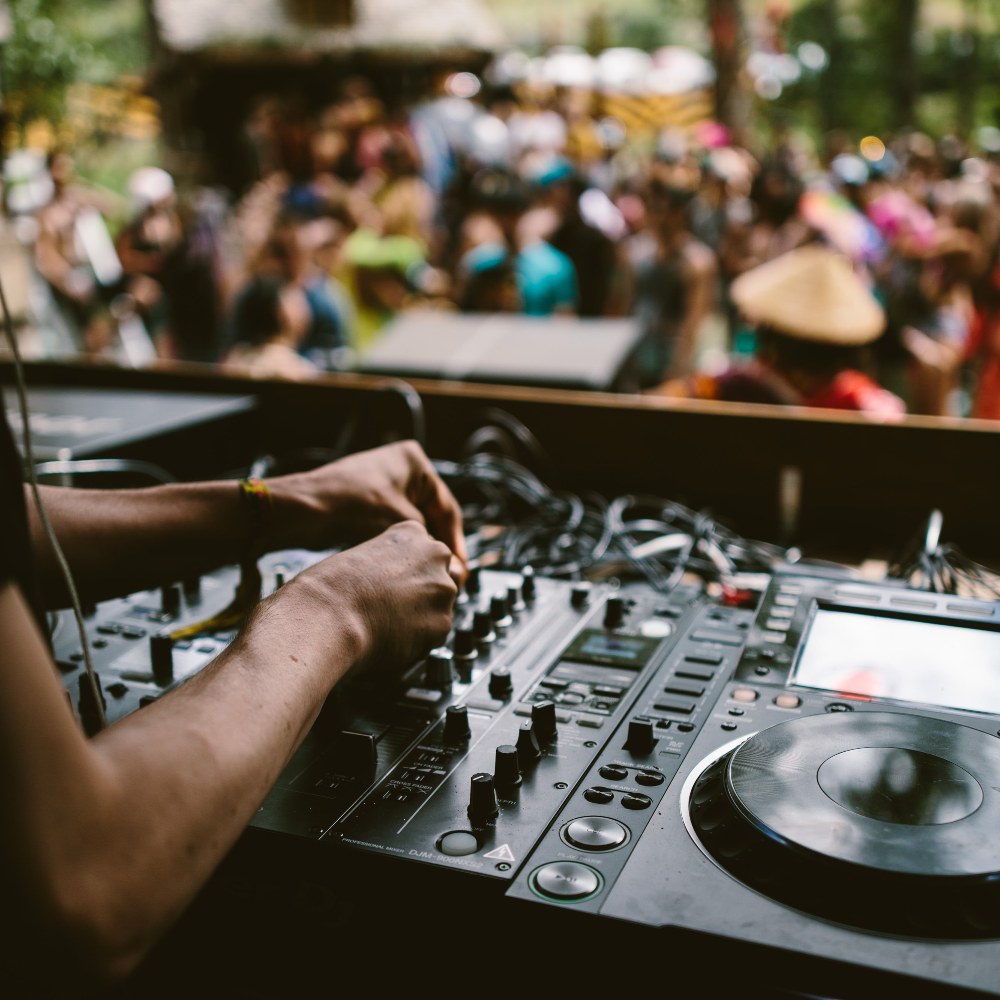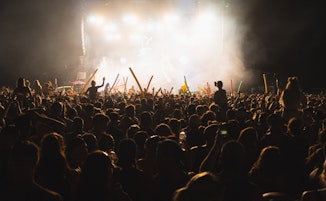
■ Features
To help raise awareness of common mental and physical health problems suffered by DJs, we’ve put together a quick guide on how DJs can stay healthy.
There are multiple different health problems that afflict DJs of all skill levels. Loud music, the fast pace of life and repetitive motions, such as scratching and crowding, put a lot of stress on your body and mind.
In the following article, we get into some of the health issues that keep popping up - from DJ burnout to sleep problems and back injuries - and offer advice on how to avoid or ease them.
Musicians who do regular DJ gigs can often suffer from burnout and exhaustion from being away from home for long periods of time and generally working long hours. The constant travel and the fact that they are “on” all night long at club venues with little rest is hard on their bodies, minds and spirits.
You should take regular breaks if you want to avoid this problem. If you do not take enough rest in between gigs, you will end up feeling drained out and burnt out eventually. The more breaks you take the better it is for your mental health and overall energy levels.
A couple of things you can do to avoid burnout as a DJ are:
Eat well - Try to eat healthy food when you are travelling or out at gigs even if it is difficult to find. Be mindful of following good eating habits with foods high in protein and low in fat, especially when your schedule is hectic and you are constantly on the go. Avoid overindulging in alcohol too often while you are on tour; drink plenty of water instead.
Exercise - The best way to get rid of stress is to work out. It needn’t be anything too strenuous – a brisk walk outside (just 30 minutes) will do wonders for your mind and body. If you don’t feel like talking, listen to a podcast or some music while you’re out.
For more advice on protecting your mental health as an artist, check out our '6 Tips To Help Avoid Creative Burnout'.
One of the most prevalent and talked about affects of loud music is a condition called tinnitus - caused by long periods of exposure to noise. Tinnitus is the perception of sound when no external noise is present. The most common form of tinnitus is a steady, high-pitched ringing. While not painful, for many people it can be distracting and annoying. For some it can be so severe that it interferes with their ability to work or enjoy daily activities.
Although hearing loss and tinnitus are often linked, one does not always cause the other. You may have tinnitus without any detectable hearing loss, or you may have normal hearing but still have tinnitus.
One of the main causes of tinnitus is noise-induced hearing loss. Loud noises damage hair cells in your inner ear that transmit sound to your brain. When these hair cells are damaged or die, they create a "phantom" sound that only you can hear.
Although there's no cure for chronic tinnitus, there are steps you can take to control the ringing and minimise its effect on your life:
Use Earplugs - You should always wear earplugs at loud events.
Give Your Ears Breaks - Limit exposure to loud sounds, both by taking breaks in the club and the studio, but also by avoiding power tools, lawnmowers, snowblowers, etc.
Turn The Volume Down - No doubt, as a DJ, you're listening to a lot of music. As well as taking regular breaks, turn it down a bit.
For more information on avoiding or coping with tinnitus as a DJ, you can read our feature with Berlin-based artist Minor Science 'How To Avoid Or Cope With Tinnitus Working In Music'.
DJ related back injuries are less talked about but are another common health risk associated with the job. While performing, some DJs stand in one place, while others move around. Either way, hours of standing or dancing can take a toll on your body.
To reduce the risk of pain or injury, there are a few simple precautions you can take that won't even affect your DJ performance:
Move Around - Don't stand completely still, hunched over the decks for hours - change positions often. If possible, alternate sitting and standing every 20 minutes or so to give your lower back a break from supporting your weight.
Wear Comfortable Shoes - By comfortable shoes, I mean that cushion your feet and support your arches. If you do a lot of moving on stage behind the turntables or dance floor console, be sure to wear shoes that are thick-soled enough to protect your feet from stepping on sharp objects such as glass or metal shards that might be scattered on the ground by careless partygoers.
DJ's chronic sleep problems are also often caused by the demands of their career. DJs often find themselves staying up late for gigs and getting up early to check out of hotels. They don’t get enough sleep, causing them to experience tiredness throughout the day. This can lead to headaches and mental fogginess, both of which can affect performance.
On top of this, some DJs work day jobs, so even if they finish their gig at 1 AM, they still have to wake up early for work the next morning. Sleep deprivation can lead to weight gain, anxiety and depression.
Here are a couple of things you can do to maximise the hours of sleep that you do get:
Prioritise Rest Days - If you've been up late, prioritise getting an extra few hours of sleep the next day. If you're staying in a hotel, ask the promoter or event organiser to request a late checkout so you can get as many uninterrupted hours as possible.
Practice Moderation - Alcohol and drugs disrupt your sleep and also affect the quality of sleep that you do get. Don't overdo it and drink plenty of water throughout the night.

A DJ's lifestyle does not have to be unsustainable and dance music doesn't have to be remotely harmful. If you're health aware, you can perform for a long time without suffering any adverse effects. Fortunately, the electronic music scene is becoming increasingly holistic and you won't feel like the odd one out for looking after your health.
